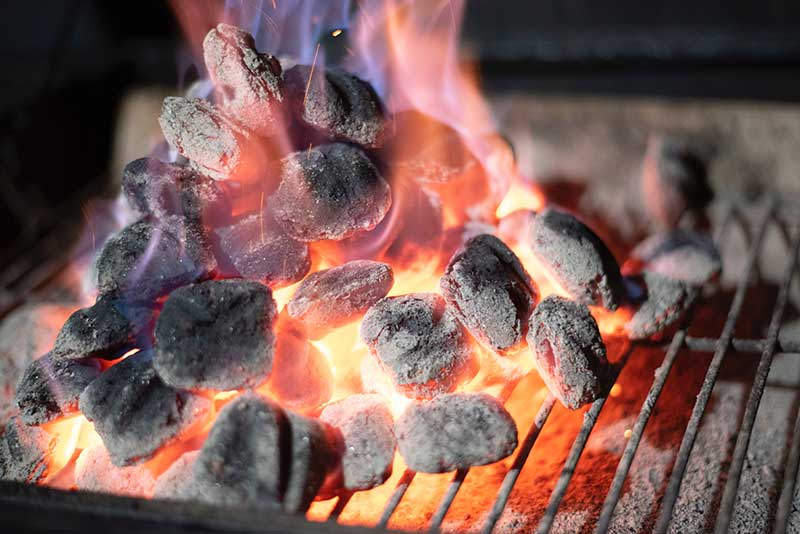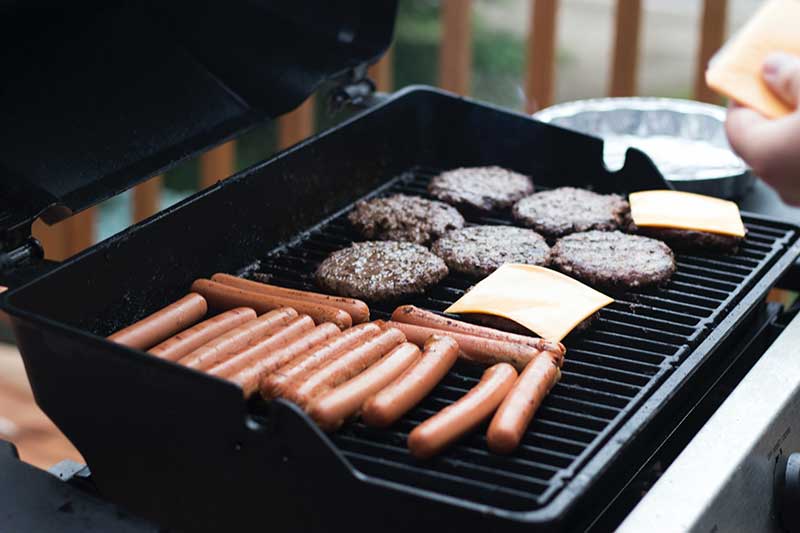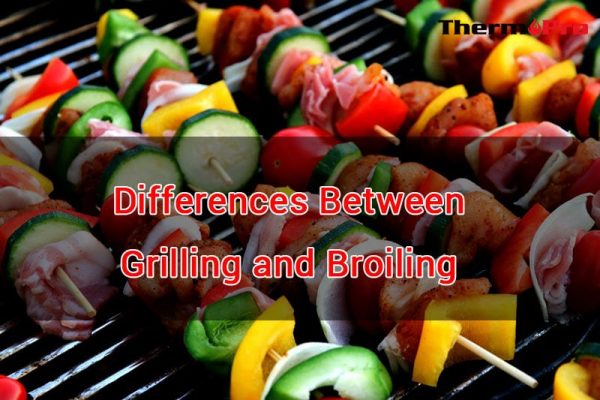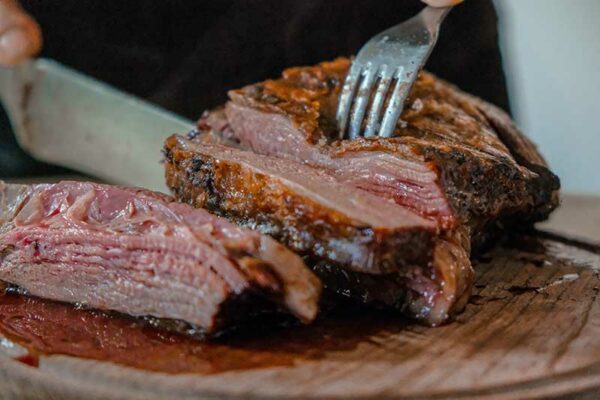The customer service team is always listening, taking notes, and quantifying complaints to ensure our products are continually improved. Due to selling directly to you, the customer, via Amazon, we can use product reviews to help us improve our existing products or help further development of new products.
Gas Grill VS Electric Grill VS Charcoal Grill - Difference and Comparison
Table of Contents
Grilling is one of summer’s many great pleasures, playing an important role in countless backyard get-togethers, birthday parties, and family gatherings. If you’re in the market for a new grill, it’s important to know how different types compare – a charcoal vs gas grill, electric vs gas grill, etc.
Each type of grill offer’s its own unique benefits. In recent years, alternatives to coal-based barbecuing have grown in popularity thanks to health-benefits of an electric or gas grill vs charcoal grill. In fact – some multifamily housing units ban grilling within 50 feet of the premises because of charcoal’s carcinogenic emissions, playing a big role in the rise of electric grilling.
But if you own your own property, charcoal grilling may not be an issue. You may prefer the flavor or enjoy the experience of grilling with coal more than with an electric or gas-powered device.
The question remains: of gas, electric, and coal-powered grills, which offers the greatest barbecuing experience?
Let’s look at the pros and cons of each to see how different types of grills compare.
The Basics: Electric, Gas, and Charcoal Grills
When you think of a grill, you might picture a traditional charcoal-fueled barbecue. Historically, charcoal is the most popular choice for grilling but in recent years, gas and electric-powered options have become more popular.
Charcoal Grills
If flavor is your greatest priority, charcoal may be your ideal fuel source for grilling. Cooking with charcoal imparts that classic charbroiled, smoky taste into food that gives barbecued meats their unforgettable flavor. However, that taste comes with a drawback – since charcoal emits smoke, it also imparts carcinogenic compounds into the food and the air.

Cooking with charcoal requires adequate space. It creates immense heat and produces a lot of smoke, which can cause trouble if you are grilling near a multi-family dwelling or other people.
In general, it takes more time to cook with charcoal than gas or electricity. You need time to light the coals and stoke them until they achieve your desired temperature – taking between 20 and 30 minutes in many cases.
Once you start grilling with charcoal, you can’t turn the grill “on” and “off.” You need to tend to the coals until you’re finished cooking and the briquettes have time to cool. If you’re cooking with charcoal, you’ll need more preparation than with gas or electricity.
Pros of Charcoal Grills
- Gives food a distinct charbroiled flavor
- Budget-friendly options available
- Most traditional fuel source for barbecues
- Sears meat and vegetables quickly, creating a caramelized exterior
Cons of Charcoal Grills
- Smoke contains dangerous carcinogens linked to certain types of cancer
- Requires ongoing upkeep and continual purchase of charcoal
- Takes longer to start grilling
- Can’t be turned off – briquettes must be left to cool on their own
- Requires space and may not be permitted at some multi-family dwellings
Gas Grills
Charcoal is the most traditional fuel source for barbecuing, but gas grills are the most common choice today. Why are people choosing gas grills over electric or charcoal-fueled alternatives?
Gas grills offer a bit of both worlds, imparting a strong, smoky flavor with the convenience of an electric barbecue. Powered by natural gas or propane, they produce a strong, hot flame that sears meat similarly to charcoal.
Additionally, gas grills may feature add-on features that make them more attractive than their competitors. Gas grills may offer bonuses like rotisserie setups, smoker boxes, side burners, and more. You also have greater control over the temperature with gas grills.
Like charcoal, you need a lot of room to use a gas-powered grill. They create a lot of heat and may not be permitted within a certain distance of some apartments or condominiums.
On the same token, gas grills are usually larger than electric or charcoal-powered alternatives. Gas grills require a propane tank or natural gas hookup, limiting their portability.
Natural gas grills are typically safer than propane-fueled grills because they lack an external tank hookup, but once they are hooked up to your home’s natural gas line, you can’t easily move them.
However, they’re easy to start and don’t require 20-30 minutes to heat up like a charcoal barbecue.
Pros of Gas Grills

- Offer more features than charcoal or electric grills
- Gives food an authentic barbecue flavor
- Cooks food quickly
- Does not emit carcinogens
Cons of Gas Grills
- Require a lot of space and may not be allowed at some housing complexes
- Propane tanks can be dangerous
- Are not portable if attached to a natural gas line
- Are usually larger than charcoal or electric grills
Electric Grills
Of the three types of barbecues, electric grills are the least traditional. They’ve become more popular than ever in recent years, earning a reputation as the healthiest, most easily accessible way to grill.
Unlike gas or charcoal grills, electric grills only require an outlet to work. You plug them into the wall or into an extension cord and they heat up in minutes.
You can buy electric grills in a variety of sizes, from a personal-sized, serving-for-one countertop grill to a large outdoor setup ideal for parties and get-togethers.
However, it’s important to remember that electric grills may not create the same traditional smoky flavor you enjoy from charcoal and gas-powered machines. They do not impart a charbroiled taste, which may impact their appeal for some audiences.
Pros of Electric Grills
- Easy to use
- Heats up more quickly than other options
- Healthier than other types of grills
- Safe than other types of grills
- Countertop options available, making them a perfect choice if you’re living in an apartment or condominium
Cost-effective
Cons of Electric Grills
- Does not recreate the classic charbroiled taste of charcoal or gas
- Requires access to an outlet for power
- Can increase electricity bills if used regularly
Comparing an Electric Grill vs Gas Grill vs Charcoal Grill: Which Tastes Better?
Taste is a matter of personal preference, but the consensus among barbecue enthusiasts is that charcoal grills offer the best tasting results.
Cooking with charcoal creates a smoky flavor in food that electric grills simply can’t replicate. Some gas grills get close, but ultimately taste a little different than charcoal.
On the other hand, electric grills tend to produce a ‘healthier’ taste. Some people find the classic smoky flavor of charcoal unappealing because it doesn’t taste like healthy eating, which they can get from cooking with an electric grill.
Which Grill is Healthier?
Electric grills are the healthiest way to cook outdoors. They don’t produce carcinogens and they don’t use unsustainable gas fuels that are bad for the environment. If health is your primary concern, an electric grill may be your best option compared to charcoal or gas.
Comparing Charcoal, Gas, and Electric Grills.
Charcoal vs Gas Grill
Gas grills are popular because they are relatively easy to use. You don’t have to wait for the coal to ignite before you start cooking, making them a convenient choice for barbecuing – with a gas grill, it’s as easy as connecting a fuel line and starting it up.
However, charcoal grills are usually more budget-friendly than gas-powered machines. If you’re tight on space, you can pick up a small charcoal grill for less than $25 at your local hardware store or online. They’re also more portable than gas grills, especially those powered with natural gas.
But cooking with charcoal has a few drawbacks – safety being one. When coal burns, it emits carcinogenic particles into the air and into the food you’re cooking. The smoking flavor that gives charcoal-grilled food its distinct flavor may be detrimental to you health, according to recent studies.
When you cook with charcoal, it’s particularly important to check your food’s temperature before serving. Because charcoal may cook food more unevenly than gas or electric grills, you can’t rely on sight to make sure your meal is ready. You’ll need add-on tools like a reliable food thermometer to make sure your meat is cooked all the way and safe to serve.
Additionally, charcoal can be messy, and ash can get into your food when cooking. Overall, cooking with charcoal may be cheaper than with a gas-powered grill, but using propane or natural gas may be a healthier, more convenient option.
Environmentally speaking, natural gas and propane aren’t the most responsible fuel choices. Unlike solar or wind power (which can source electricity for electric-powered grills in some regions), natural gas and propane are not sustainable. They are not carcinogenic like charcoal but are widely believed to encourage climate change and environmental destruction.
Electric vs Gas Grill
Electric grills are relatively new to the scene but are quickly becoming more popular for their ease of use, portability, and health benefits. However, they may not offer the same traditional grilling experience you might expect from a charcoal or gas grill.
Electric grills – unlike gas or charcoal-fueled grills – need electricity to function. You need to plug them into an outlet to power on, whether it’s into the socket directly or through an extension cord.
Alternatively, gas grills use propane or natural gas as fuel. They do not need to be plugged in – instead, they use a propane tank or natural gas line to supply fuel.
Gas grills with propane tanks offer more portability than grills using natural gas but can pose a danger if the tank leaks. However, natural gas lines are not portable at all so don’t expect to take it with you anywhere once it’s hooked up to your home’s gas supply.
While convenient and easy-to-use, electric grills typically offer a less authentic grill flavor than charcoal. They don’t impart a smokiness the same way coal does when it burns but does not impart carcinogenic chemicals into the food as a result, either.
The main draw of electric grills is convenience. Because they don’t produce smoke to the same degree as a charcoal grill, they’re a perfect choice if you live an apartment or condominium that doesn’t allow charcoal-fueled cooking within a certain distance of the building.
Unlike gas grills, electric grills are available in small, countertop-size options. The classic George-Foreman grill is an example of a countertop electric grill, but dozens of other options are on the market. If you need to save space or you’re shopping on a budget, a moderately-sized electric grill may be the right option for you.
Final Thoughts
Advances in technology have greatly impacted grilling and barbecues. In the past, charcoal fuel was the standard for outdoor cooking. However, recent improvement in electric grills have made them a more popular option, while gas-powered grills are widely-used for their convenience.
Ultimately, the right grill for you depends on your priorities. Are you looking for a classic charbroiled taste or a healthier, easier option? It’s important to research all your options and understand the pros and cons. With the right knowledge, it’ll be easier to choose the right grill for your barbecuing needs.









